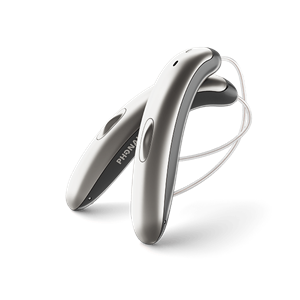Phonophobia and misophonia | Connect Hearing

Phonophobia and misophonia | Connect Hearing
5 Min.
Publication Date: July 18, 2019
Are you or is someone you know highly sensitive to a certain set of sounds? Intolerance of certain sounds is not necessarily a hearing issue. It can actually be the result of psychological conditions known as phonophobia or misophonia. These conditions can significantly affect a person’s ability to tolerate certain sounds, and often causes them to act overly frightened or irritated when someone makes a sound that is perceived as unpleasant by those affected. Fits of rage, panic attacks and nervous breakdowns are all common symptoms of these conditions. Interested in learning more about phonophobia and misophonia? Read on to find out more on the symptoms of these conditions and how they are treated.
What is misophonia?
“Miso” is Greek for hatred or aversion while the equally Greek “phonia” stands for sound. Thus, misophonia concerns an intolerance of certain sounds such as dripping taps, keyboard typing or the chewing of gum. Exposure to these sounds can cause those affected by the condition to become extremely irritable.
Misophonia, which is also known as selective sound sensitivity syndrome, is a neurological problem where the central nervous system confuses sounds with other stimuli. A person suffering from misophonia is incapable of ignoring irrelevant sounds and concentrates on the unpleasant situation which causes irritability.
While such incidences involve sounds that most people would barely notice, for those suffering from misophonia, these sounds can often cause some serious interpersonal problems. As the sounds in question become more and more unbearable, the affected person might experience anxiety and even have the urge to flee the situation. This is why people with misophonia often avoid leaving the house.
Depending on the degree of a person’s misophonia, their reaction to unpleasant sounds can vary from light to medium to serious. The main symptoms of this condition include:
- unreasonable reaction to common sounds;
- desperate attempts to leave uncomfortable places;
- irrational irritability;
- moodiness;
- fits of rage;
- insulting the person emitting sounds.
What is phonophobia?
This condition is characterized by experiencing fear when hearing certain sounds – in extreme cases, misophonia may even be categorized as phonophobia. In such situations, those affected may experience a nervous breakdown, start to sweat heavily or develop palpitations.
Other common fear-inducing noises include honking cars, alarms, sirens, fireworks and traffic noises in large cities. Signs of phonophobia include:
- panic attacks;
- nervous breakdowns;
- palpitations;
- heavy sweating;
- stress;
- nausea;
- dizziness;
- mysterious physical pain;
- passing out.
How can these illnesses be treated?
Irritability can also be a result of hearing loss yet misophonia and phonophobia are illnesses that cannot be cured by treating one’s ears. Despite that you should consult an audiologist. In the course of treatment, exposure therapy for sounds or tinnitus can be administered.
Phobias are fears that develop subconsciously. Anxiety towards everyday sounds is therefore caused by irrational fear. This is why a multi-disciplinary approach provided by a team of audiologists, psychiatrists and psychotherapists is required when treating misophonia and phonophobia. These illnesses cannot be cured but adequate treatment can allow those affected to deal with their condition and maintain quality of life.
In summary, misophonia and phonophobia are conditions that cause irritability towards sounds but are not hearing issues. Despite this, it is important to consult a specialist who can assess the situation and initiate the proper treatment when detecting early symptoms. This allows those affected by these conditions to get their fears under control and live a healthy life.
Do you identify with these conditions? No? Then you might suffer from a different problem. Contact us to erase all doubt and protect your hearing health.
Author
Connect Hearing Canada



